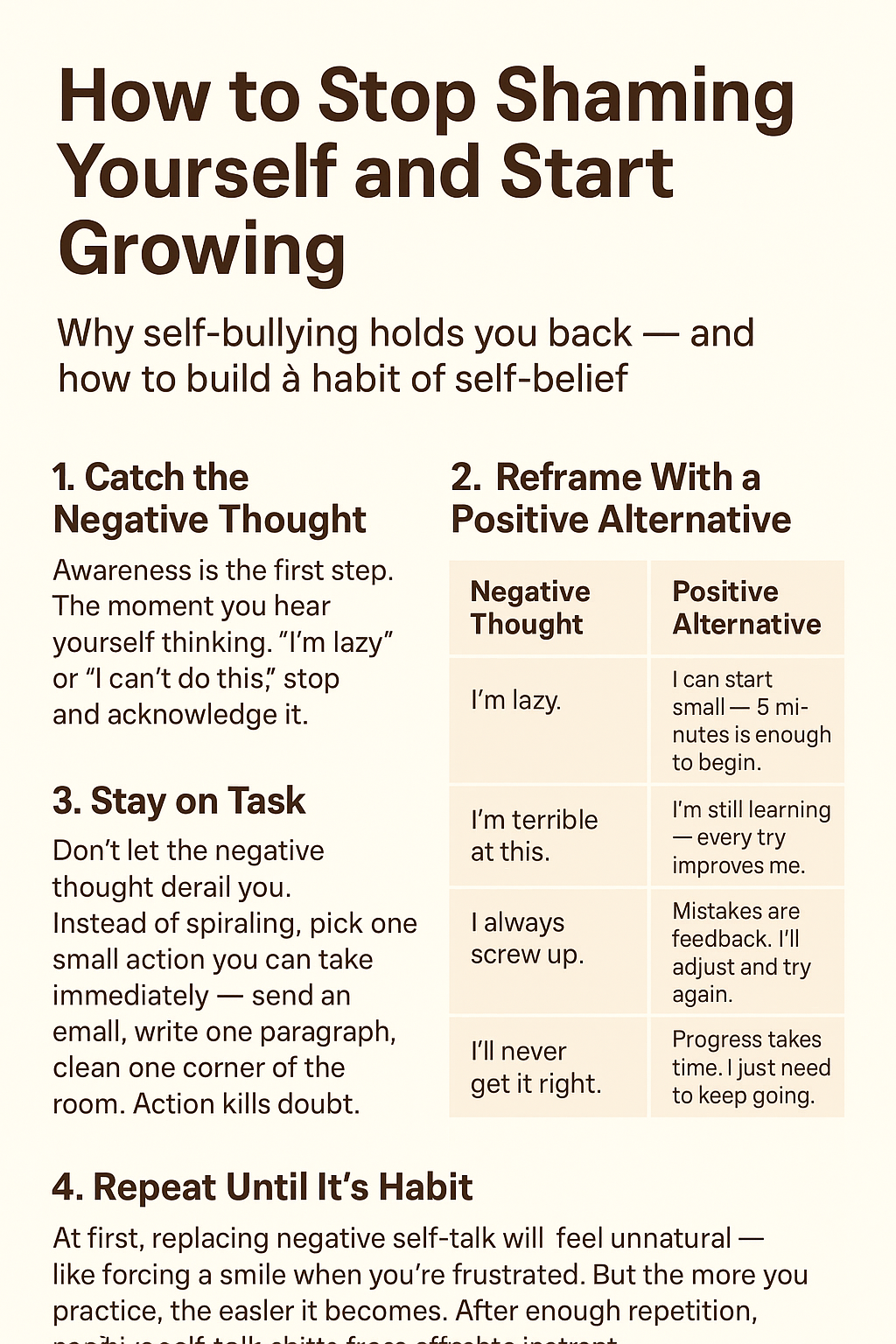05:11:41 pm 08/15/2025
Viewed: 28810
How to Stop Shaming Yourself and Start Growing
(Why self-bullying holds you back — and how to build a habit of self-belief)
The Problem With Self-Shaming
We’ve all done it.
Miss a deadline? “I’m so lazy.”
Forget something important? “I’m stupid.”
Make a mistake? “I always screw up.”
You might think these harsh words will “toughen you up” or motivate you to do better. But research shows the opposite is true.
When you attack yourself verbally, your brain triggers its threat response — the same survival mechanism it uses for physical danger. This floods your system with cortisol and adrenaline, narrowing your focus to escape, not improvement.
The result? You procrastinate more, your creativity drops, and your confidence erodes.
Why Positivity Works
Positive, constructive self-talk activates a growth mindset — a belief that skills can be developed through effort and learning.
Psychologists like Dr. Carol Dweck and Dr. Kristin Neff have shown that people with a growth mindset respond to setbacks with curiosity instead of shame, leading to faster learning and better long-term performance.
Step-by-Step: Replacing Negativity With Progress
Think of this as reprogramming your mental operating system.
Step 1: Catch the Negative Thought
Awareness is the first step. The moment you hear yourself thinking, “I’m lazy” or “I can’t do this,” stop and acknowledge it.
Step 2: Reframe With a Positive Alternative
Here are some examples:
Negative Thought Positive Alternative
“I’m lazy.” “I can start small — 5 minutes is enough to begin.”
“I’m terrible at this.” “I’m still learning — every try improves me.”
“I always screw up.” “Mistakes are feedback. I’ll adjust and try again.”
“I’ll never get it right.” “Progress takes time. I just need to keep going.”
Step 3: Stay on Task
Don’t let the negative thought derail you. Instead of spiraling, pick one small action you can take immediately — send an email, write one paragraph, clean one corner of the room. Action kills doubt.
Step 4: Repeat Until It’s Habit
At first, replacing negative self-talk will feel unnatural — like forcing a smile when you’re frustrated. But the more you practice, the easier it becomes.
After enough repetition, positive self-talk shifts from effort to instinct. Your brain begins defaulting to encouragement instead of criticism.
Why This is a Key Ingredient to Success
Successful people aren’t perfect — they’re persistent. They keep showing up because they believe they can improve.
By turning positive self-talk into a habit, you create an internal coach that pushes you forward instead of holding you back.
Shame freezes you. Belief moves you.
Choose belief. Every time.
No video exists.





Comments